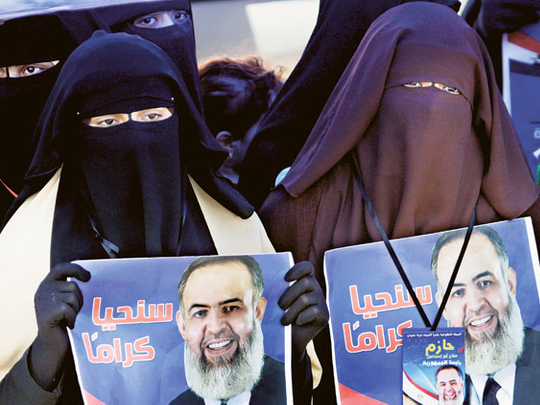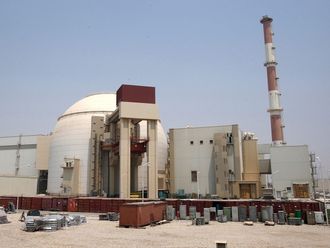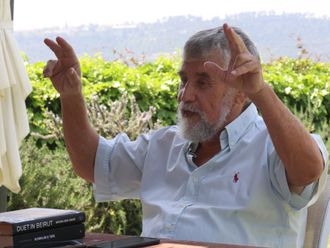
Cairo Weeks after being barred from standing for president, Hazem Salah Abu Esmail, a populist anti-US preacher, has called for a mass protest against "injustice" today in Tahrir Square, the focal point of the demonstrations that forced Hosni Mubarak to step down in February last year.
"I call for this rally for the first time in six months because things have worsened terribly. I'll be there despite my health problems," he added. Abu Esmail is at the centre of controversy as Egypt braces for its first presidential elections since Mubarak's removal from power.
Abu Esmail, a 50-year-old Salafist (ultraconservative) lawyer by profession, is suspected of organising a mass rally by his supporters near the defence ministry in Cairo where violence last week left ten people, including an army soldier, dead and hundreds injured.
His supporters were protesting a decision by an official commission supervising this month's presidential polls to ban Abu Esmail.
The commission said he was barred because his mother was a US citizen, a violation of criteria set for the presidency. The commission has also accused him of forging his registration documents.
Abu Esmail and his followers have accused the commission of bias, claiming he was the victim of a conspiracy by the US and Egypt's military rulers. Last month, he warned that his exclusion would lead to "dire consequences".
"Who becomes Egypt's president should not depend on a document issued by America or Israel," he told thousands of his backers in a mosque near Cairo.
Abu Esmail has not been seen in public for more than a week, with his close friends saying he suffers from a backache and has been advised by doctors to stay in bed.
Mass protest calls
But in the aftermath of the defence ministry skirmishes, he denied he was behind the violence for which he blamed the ruling generals. In a statement on his Facebook page, Abu Esmail called for a mass protest against "injustice" today in Tahrir Square, the focal point of the demonstrations that forced Mubarak to step downr.
"I call for this rally for the first time in six months because things have worsened terribly. I'll be there despite my health problems," he added.
Despite his exclusion from the presidential race due to begin on May 23, Abu Esmail continues to appear with his white wispy beard in posters adorning walls across Egypt. His supporters believe he was barred because of his repeated pledges to enforce a strict version of Sharia.
"His devotees had earlier warned of a bloody revenge if he were excluded from the presidential marathon," wrote Mohammad Abdul Hafez in the state-owned Al Akhbar newspaper.
"And they did it in Abassiya," he added, referring to the Cairo area where the defence ministry is located.
"Blame should also be laid at the door of the fragile state institutions, who are intimidated by a person who has appeared suddenly on the political stage and forcibly insists on running for president. Abu Esmail should be put on trial."
Unconfirmed reports claim Abu Esmail along with other salafists are to be interrogated for instigating the Abassiya violence. However, his arrest may cause fresh violence, say experts.
"Ordinary Egyptians believe that the [ruling] military council should be firmer in stemming chaos in the country," said Saeed Al Sunni, a political expert. "This firmness should be sought by invoking the law, not by using force."
More than 300 were detained over the Abassiya violence. They may face trial. "But summoning Abu Esmail for questioning will be a political decision, given the sensitivity of the situation. Such a move can spark more trouble in the run-up to the presidential elections," said Al Sunni.












